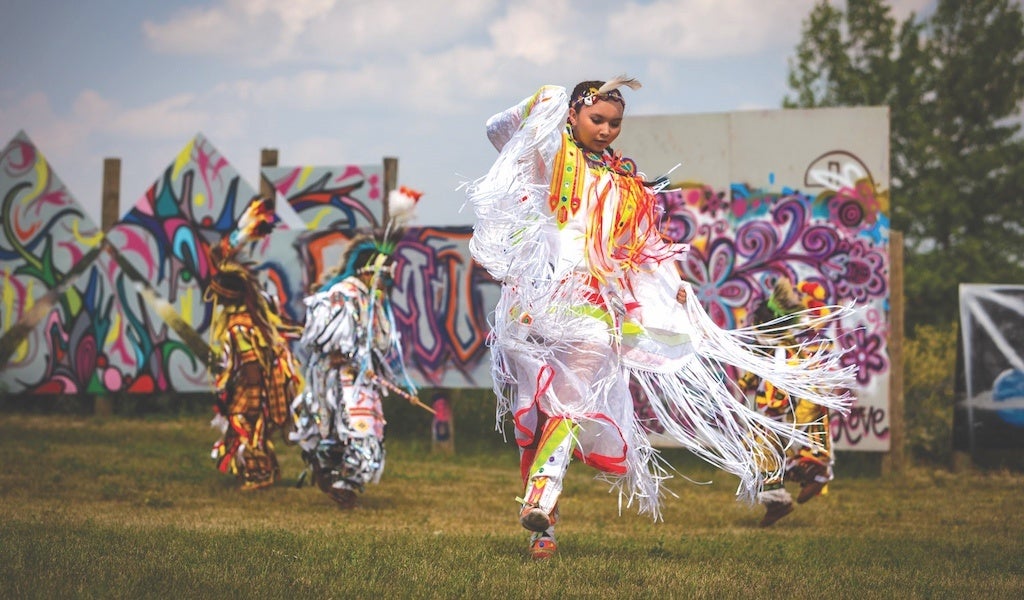
One in two Native American children born today will develop diabetes in their lifetime. “That’s a horrifying statistic,” said Mariah Gladstone, a 23-year-old food-sovereignty advocate from the Blackfeet Nation in Montana. Health disparities like these are far too common in Native American communities. That’s why Gladstone created Indigikitchen, a YouTube cooking show that features modern recipes that incorporate traditional indigenous ingredients like bison, root vegetables, and rice to promote healthy lifestyles among Native communities.
This year, the Institute’s Center for Native American Youth named Gladstone a Champion for Change for her innovative cultural approach to improving Native lives. Each year, CNAY selects five Native youth to become Champions. These young people are acknowledged for using their own resources—however abundant or limited—to create a positive impact. Now, CNAY is helping tribal communities themselves build on the power of youth recognition.
Thanks to a generous anonymous donor, CNAY began a partnership this year with the Cheyenne River Youth Project to integrate the Champions for Change model into its programming. The project, situated on the Cheyenne River Sioux Reservation in Eagle Butte, South Dakota, provides Native children with a safe space to play, learn about their culture, express themselves, and develop the skills to become leaders in Indian Country. The project also knows that to reach their potential, Native youth must have their basic needs met: food to eat, a warm place to sleep, and supportive mentors to counter negative influences.
This year, CNAY invited Institute leadership to join them for a visit to the communities served by the Cheyenne River Youth Project. “A trip with CNAY to Indian Country is transformative,” Institute Executive Vice President Elliot Gerson said of his visit to the Cheyenne River Sioux Reservation. “It demonstrates the powerful impact of Institute programs at the local, grassroots level across America.” That visit came just two months after Cheyenne River Youth Project Executive Director Julie Garreau traveled to Washington to observe Champ Week, which brings CNAY Champions for Change together for a week of advocacy and leadership training. Champions meet with members of Congress, talk to policymakers, and network with national advocacy groups. The experience teaches young Native leaders to talk about their work with anyone—from fellow grassroots organizers to Capitol Hill officials. “From the time I met the Champions until the day I left, I witnessed a remarkable transition,” Garreau said. “They carried themselves with confidence and spoke with such assurance. The guidance CNAY provided was exceptional. It’s another way to provide options, opportunities, and access.”
The federal government’s long history of unfulfilled commitments to Native people has created cycles of trauma on reservations that perpetuate struggles in virtually every arena, like health care, higher education, and economic advancement. Despite this, Native youth are working hard to pursue brighter futures. “CNAY knows these young leaders,” former Senator Byron Dorgan, the founder of CNAY, said. “They tell us about the challenges they’re facing, and they share their dreams and ideas for moving their communities forward.”
In phase two of this new project, CNAY will identify a second community in which to develop a new youth-recognition program. “After five years of being inspired by the national Champions for Change program, we are eager to partner at the local level to support other communities,” CNAY Executive Director Erik Stegman said. “When we honor young people, they unlock enormous potential for change.”